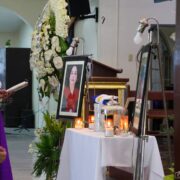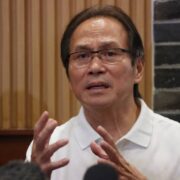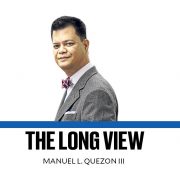A partnership in hyperdrive

The relationship between the Philippines and the United States is a testament to the depth and power of the word “partnership.” Over the decades, this partnership between our two countries, seeing the highs and lows of world events, has evolved and strengthened, especially concerning issues of mutual concern.
One such issue is the preservation of the rules-based international order. The recent visit of US Secretary of State Anthony Blinken illustrated this. The resulting conversation solidified the partnership and renewed the US’ steadfast commitment to both the maritime and economic security of the Philippines and the rest of the Indo-Pacific region.
“Hyperdrive” was the word used by Blinken in describing the “ironclad” alliance between the US and the Philippines. Both are concerned about the growing tensions and actions that threaten peace and stability in the region. He also described the expansion of partnership between the two countries as “extraordinary.”
The alliance, he said, has never been stronger. He highlighted the shared concern of the US and the Philippines regarding China’s actions, which pose threats to the vision of a free and open Indo-Pacific, including the South China Sea and the Philippines’ exclusive economic zone.
The Chinese foreign ministry has heavily criticized the ties between the US and the Philippines. Its spokesman, Lin Jian, said the US has “no right” to interfere in the South China Sea. China is also concerned about the invoking of the 1951 Mutual Defense Treaty against aggressions in the West Philippine Sea. Because of the treaty, Washington indeed has the obligation to defend its ally, the Philippines, but Blinken said this would only come to pass in the event of an armed attack against the Philippines.
Blinken also confirmed that US President Joe Biden will have a one-on-one meeting with President Marcos at the White House on April 11.
Blinken’s second state visit to Manila took place soon after US Commerce Secretary Gina Raimundo’s presidential trade and investment mission here on March 11 and 12. She led a delegation composed of executives from 22 American businesses and nonprofit organizations, including corporate leaders from Microsoft, Google, FedEx, Mastercard, and Visa. These executives announced more than $1 billion of recently completed or anticipated US investments in the Philippines that are expected to generate educational and career opportunities for over 30 million Filipinos. These investments are aimed at making a significant impact in important areas such as renewable energy, transportation infrastructure, information and communication technology, cybersecurity, and cross-border data management. The goal is to promote sustainable economic development, enhance regional connections, and bolster cybersecurity to safeguard digital resources.
Furthermore, they plan to offer education and training in digital and artificial intelligence technologies to prepare Filipinos for the future workforce.
Raimondo emphasized the importance that the US attributes to a strong bilateral trade and investment partnership with the Philippines. She commended the Philippine government for recent legal and regulatory reforms aimed at liberalizing key sectors. She urged both US and Philippine private sectors, in collaboration with the Philippine government, to seize new opportunities in clean energy, digital transformation, the innovation economy, and supply chain resilience.
Such investments are crucial. The Philippine economy has long been driven by consumption and it is time to shift to investment-led economic growth.
The trade and investment mission marks a significant stride in enhancing the economic ties between the US and the Philippines. It underscores the vital role of private-sector engagement in propelling economic growth and reaffirms the mutual commitment of both nations to deepen their relationship and promote regional prosperity.
The US has long been a beneficial trade partner of the Philippines. Trade between the two countries saw a surplus for the Philippines in 2023, and the US accounted for 13 percent of the total investments made in the country. The US stands as one of the primary sources of foreign direct investment in the Philippines and has been a leading source of remittances.
In a survey conducted by Pulse Asia Research Inc., as commissioned by Stratbase ADR Institute, seven out of 10 Filipinos view the US as a country that the Philippines can have a stronger engagement with to ensure economic security for the country.
The US-Philippines relationship has been shaped by historical, cultural, political, and economic ties, driven by shared values such as democratic expression and adherence to a rules-based international order. We treasure such a partnership.
Dindo Manhit is founder and CEO of the Stratbase Group.

















